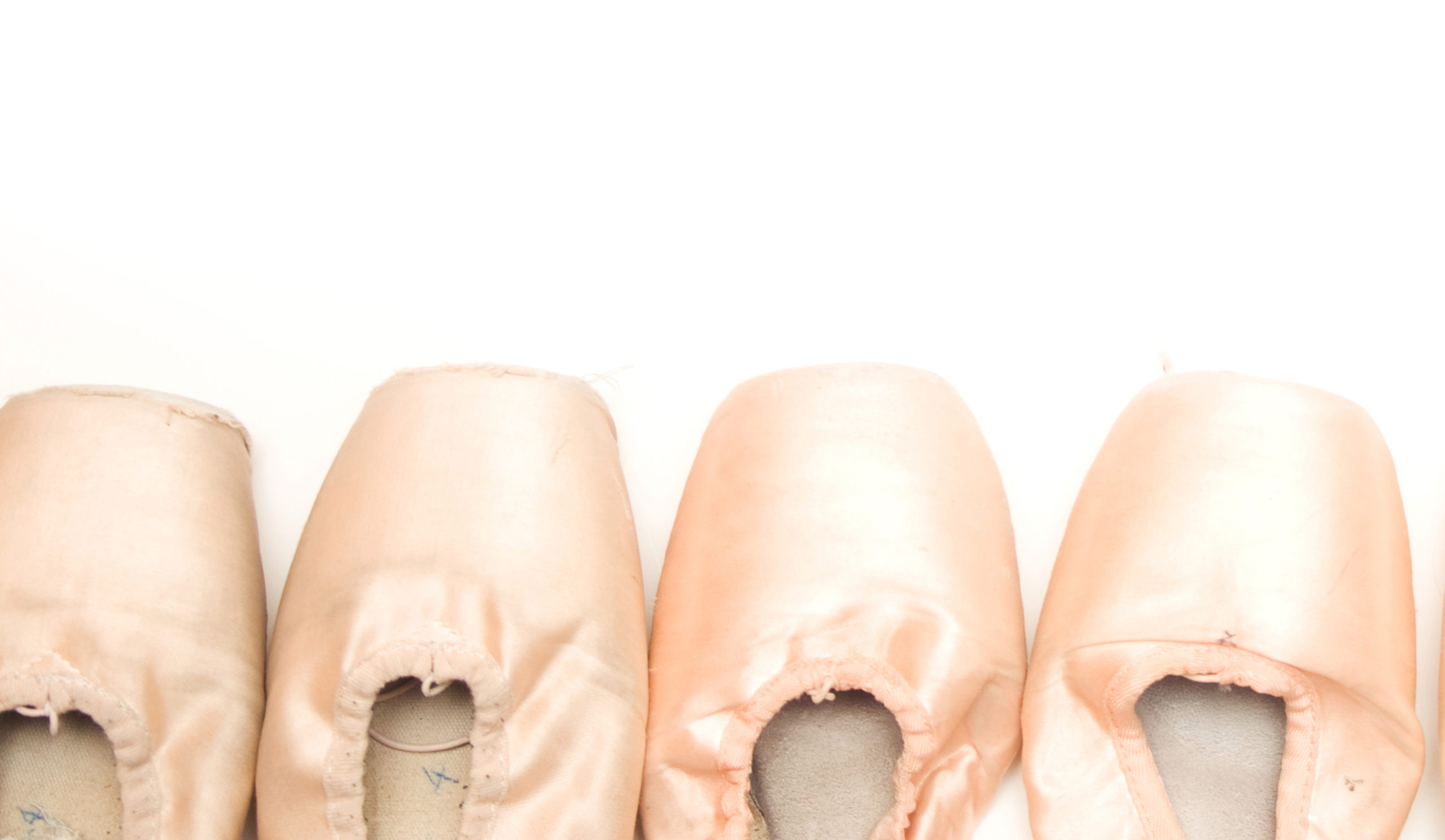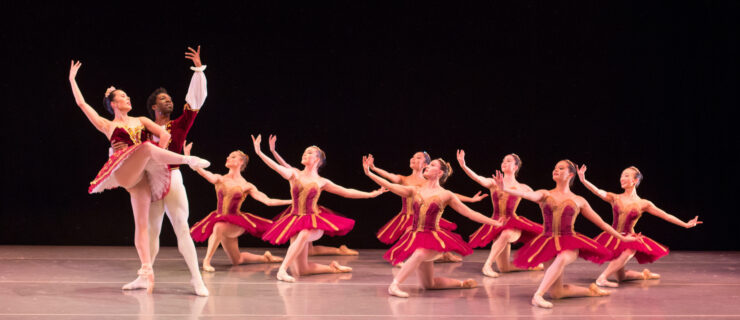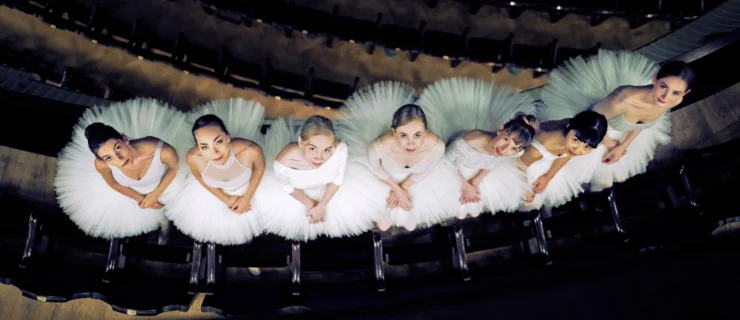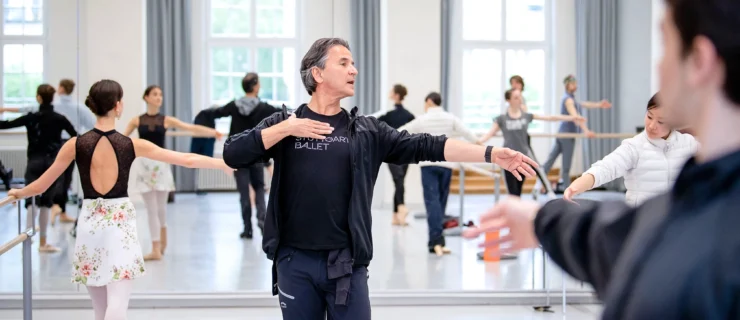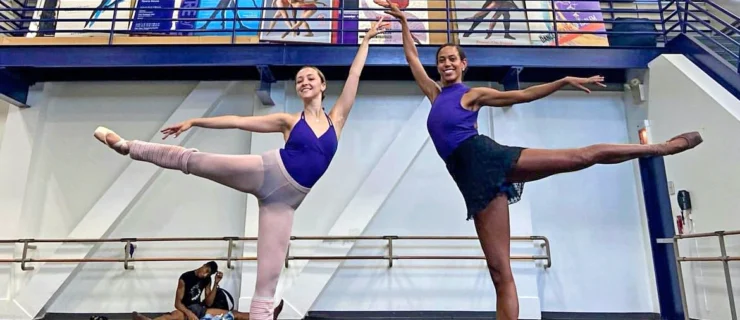Tough Tryout
For a performing artist, every moment onstage is a test, but once a year the Paris Opera Ballet takes the idea of assessment to the extreme. Originally designed as an obligatory annual exam, the Concours (literally “contest” in English) has since evolved into a voluntary, if highly encouraged, event. Since 1860, the dancers of the POB have submitted to this internal competition as the only route to promotion within the ranks of the company’s military-like hierarchy. Dancers enter the company as quadrilles, then, after successive Concours, move up to be coryphées, sujets and premier danseurs. Only the company’s stars étoiles—can be promoted at any point throughout the year.
“This is what they work toward,” says Brigitte Lefèvre, the company’s artistic director. “The dancers truly believe that the Concours is essential for them—essential to the ballet and essential to the level of excellence they strive toward.”
Over a two-day period in December, the company’s main theater, the ornate and beautiful Palais Garnier, closes its doors to the public. Only select family members, fellow dancers and specially invited guests can observe from the rear seats as a 10-member jury votes on the year’s contestants.
One by one, on a bare stage and under glaring white lights, the dancers demonstrate their skills to the panel of judges comprised of a jury of their peers (elected by the dancers themselves), Lefèvre and Paris Opera General Director Gérard Mortier. The company customarily invites two guests; in 2007 they were Zhao Ruheng, artistic director of the National Ballet of China, and New York City Ballet principal Nikolaj Hübbe, who retires this year to become the artistic director of the Royal Danish Ballet.
“I don’t prepare the judges for the competition,” says Lefèvre. “They have all been through events like this in their careers; they know what to look for. But it is true that we have differences of opinion and sometimes go through four to five rounds of votes before coming to a decision. It is a dynamic and very exciting moment.” In previous years, the results were publicly announced shortly after the Concours, but given the passionate objections that often arose, the results have since been relegated to a backstage posting and an e-mail.
The judging follows a point system; the higher the score, the more likely the promotion. Each dancer can receive a total of 30 points, 20 of which reflect his or her performance that day. The remaining 10 points are based on the year’s work. A fantastic performance at the Concours cannot make up for a lack of diligence throughout the year, though some consolation can be found from the satisfaction of being noticed, if not promoted.
In the 2007 Concours, 40 women and 34 men competed for 19 available slots, including a rare two openings for both female and male premier danseurs. Throughout the competition, the pressure is intense. “You may make a mistake during a show,” says Stéphane Bullion, a candidate for premier danseur, “but this is one performance when you just can’t.”
Clapping is forbidden, and the silence in the theater can be deafening. The contestants perform one required variation and one of their choice, each selected from the company’s repertoire. Any error is magnified. “The slightest nervous twitch can be detected by the judges,” says Eve Grinsztajn, also a candidate for premier danseur. “It is like performing under a magnifying glass.”
On the first morning of the Concours, the quadrilles open the competition at 9:30 a.m. Awake at 4, in class at 6 and in full costume by 8, the quadrilles may have the most demanding test. “The final rehearsal is surreal,” says Grinsztajn. “We are
all dressed alike, glittering together in the wee hours of the morning. Some of us laugh and joke until the last minute, while others wear headphones or isolate themselves in silence.”
Scheduled last of nine competing sujets, Grinsztajn had 55 minutes to wait backstage before her performance of the required variation, an excerpt from Act II of Rudolf Nureyev’s La Bayadère. “I had to listen to the same song consecutively eight times. It was nerve-racking,” she says. “I kept changing my shoes, joking with the security guards, anything to stay calm and focused. It was down, up, down, up. But the minute I put my foot onstage, everything felt just right.”
In a sense, each dancer’s future is on the line. “When you are standing backstage and you hear your name called, I’m not sure if a parachute jump wouldn’t be easier!” says Lefèvre, who readily admits that as a former POB dancer, the annual exam was dreadful even for her. “I was a terrible participant. It wasn’t until my last competition that I was finally able to free myself of
the terror.”
Grinsztajn won her promotion, as did Bullion. “I never gave up,” he says. His interpretation of an excerpt from Roland Petit’s The Phantom of the Opera convinced the jury to promote him to premier danseur. “Before, when I wasn’t selected, I had an even greater desire to succeed. It pushes us further.” This was his eighth Concours. One surprising victory this year went to Ghyslaine Reichert, who, at 35, was finally awarded her first promotion. She advanced from quadrille to coryphée after this, her 19th year with the company.
“I admit I voted for her this year,” says Lefèvre. “Even if she hasn’t got the complete battery of skills required to move on further, her energy, her determination and her enthusiasm, especially in her interpretation of Mats Ek’s Giselle, just swept us away.”
Lefèvre is proud of the Concours. It is an event the dancers both fear and anticipate. A unique opportunity to be in the spotlight, it offers the chance to ascend through the hierarchy of this very traditional company. It’s not a flawless system: While dancers with incredible personalities may get overlooked for purely technical reasons, others who may shine throughout the regular season in contemporary works end up sidelined by the rigorousness of the competition.
“It does make me wonder if we aren’t a bit too academic,” says Lefèvre. “But it is the basis of our company. And nothing can better prepare a dancer for life after the stage than the Concours. During my most trying moments, I ask myself if it is any harder than climbing onto that stage for the Concours, and invariably my answer is no. I have tremendous respect for dancers who manage to pick themselves up from defeat and continue.”
A freelance writer based in Paris, Karyn Bauer-Prévost has been covering dance in France for more than a decade.
